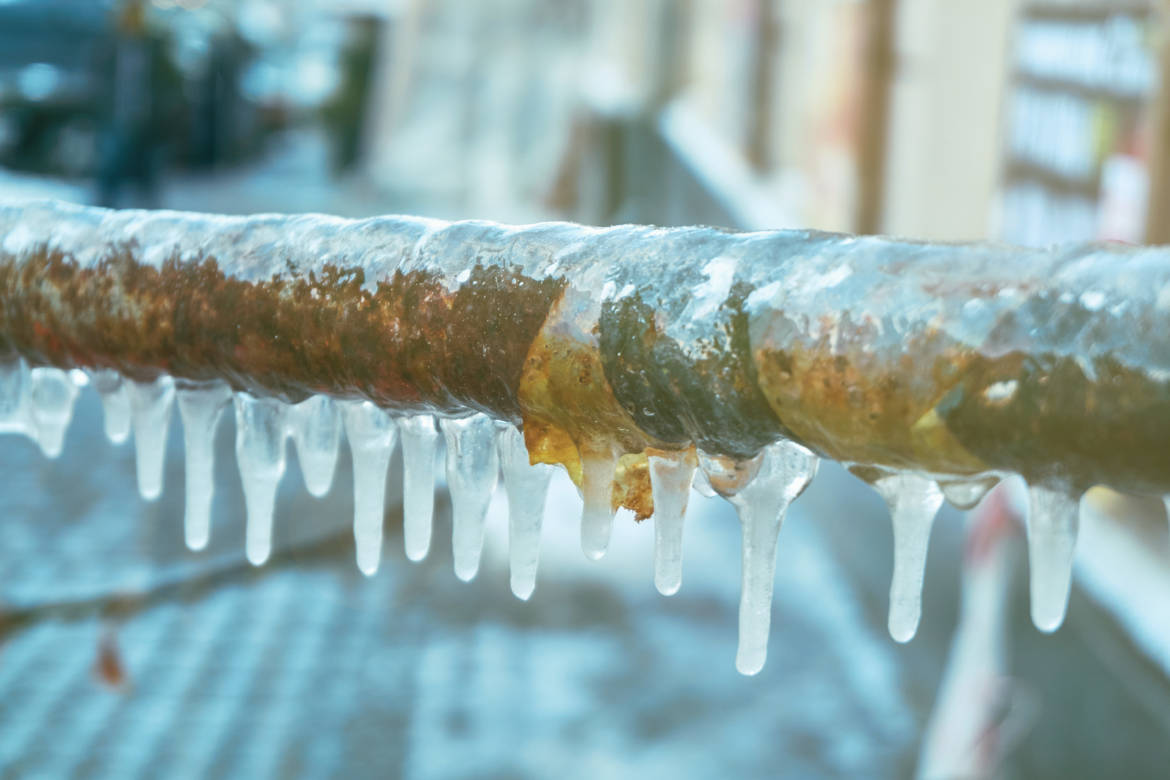Protecting Against Frozen Plumbing in Winter: Expert Strategies
Protecting Against Frozen Plumbing in Winter: Expert Strategies
Blog Article
What're your thoughts about Prevent Frozen Pipes ?

Cold weather can wreak havoc on your plumbing, particularly by freezing pipelines. Below's how to prevent it from occurring and what to do if it does.
Intro
As temperature levels decline, the risk of icy pipes increases, possibly causing pricey repair work and water damage. Understanding exactly how to avoid frozen pipes is important for house owners in cold climates.
Comprehending Icy Pipelines
What causes pipes to ice up?
Pipes freeze when subjected to temperature levels listed below 32 ° F (0 ° C) for prolonged durations. As water inside the pipes freezes, it broadens, taxing the pipe walls and potentially creating them to burst.
Risks and problems
Icy pipes can result in water disturbances, property damage, and costly fixings. Ruptured pipes can flood homes and trigger considerable structural damages.
Signs of Frozen Pipeline
Recognizing icy pipes early can prevent them from bursting.
How to determine frozen pipelines
Look for lowered water flow from taps, uncommon smells or noises from pipes, and noticeable frost on revealed pipelines.
Avoidance Tips
Insulating prone pipes
Cover pipelines in insulation sleeves or use warmth tape to safeguard them from freezing temperature levels. Concentrate on pipes in unheated or external areas of the home.
Home heating strategies
Keep interior rooms effectively heated up, especially locations with pipes. Open cupboard doors to enable warm air to circulate around pipes under sinks.
Protecting Exterior Pipes
Garden tubes and exterior faucets
Disconnect and drain pipes garden pipes prior to winter season. Install frost-proof spigots or cover exterior faucets with insulated caps.
What to Do If Your Pipelines Freeze
Immediate activities to take
If you believe frozen pipes, maintain faucets available to alleviate stress as the ice thaws. Utilize a hairdryer or towels taken in hot water to thaw pipes gradually.
Long-Term Solutions
Architectural modifications
Take into consideration rerouting pipelines away from outside wall surfaces or unheated areas. Add added insulation to attic rooms, basements, and crawl spaces.
Updating insulation
Purchase top notch insulation for pipelines, attics, and wall surfaces. Appropriate insulation assists preserve constant temperature levels and reduces the risk of frozen pipes.
Final thought
Preventing frozen pipelines needs aggressive measures and fast responses. By comprehending the causes, indicators, and preventive measures, homeowners can protect their plumbing during winter.
Helpful Tips to Prevent Frozen Pipes this Winter
UNDERSTANDING THE BASICS: WHY PIPES FREEZE AND WHY IT’S A PROBLEM
Water freezing inside pipes is common during the winter months, but understanding why pipes freeze, and the potential problems it can cause is crucial in preventing such incidents. This section will delve into the basics of why pipes freeze and the associated problems that may arise.
THE SCIENCE BEHIND FROZEN PIPES
When water reaches freezing temperatures, it undergoes a physical transformation and solidifies into ice. This expansion of water as it freezes is the primary reason pipes can burst. As the water inside the pipe freezes, it expands, creating immense pressure on the walls. If the pressure becomes too great, the pipe can crack or rupture, leading to leaks and water damage.
FACTORS THAT CONTRIBUTE TO PIPE FREEZING
Low Temperatures: Extremely cold weather, especially below freezing, increases the risk of pipes freezing. Uninsulated or Poorly Insulated Pipes: Pipes located in unheated areas, such as basements, crawl spaces, or attics, are more prone to freezing. Insufficient insulation or lack of insulation altogether exacerbates the problem. Exterior Wall Exposure: Pipes running along exterior walls are susceptible to freezing as they encounter colder temperatures outside. Lack of Heating or Temperature Regulation: Inadequate heating or inconsistent temperature control in your home can contribute to frozen pipes. PROBLEMS CAUSED BY FROZEN PIPES
- Pipe Bursting: As mentioned earlier, the expansion of water as it freezes can cause pipes to burst, resulting in significant water damage.
- Water Damage: When pipes burst, it can lead to flooding and water damage to your property, including walls, ceilings, flooring, and personal belongings.
- Structural Damage: Prolonged exposure to water from burst pipes can compromise the structural integrity of your home, leading to costly repairs.
- Mold and Mildew Growth: Excess moisture from water damage can create a favorable environment for mold and mildew growth, posing health risks to occupants.
- Disrupted Water Supply: Frozen pipes can also result in a complete or partial loss of water supply until the issue is resolved.
WHY CERTAIN PIPES ARE MORE PRONE TO FREEZING
- Location: Pipes located in unheated or poorly insulated areas, such as basements, crawl spaces, attics, or exterior walls, are at higher risk of freezing.
- Exterior Pipes: Outdoor pipes, such as those used for irrigation or exposed plumbing, are particularly vulnerable to freezing as they are directly exposed to the elements.
- Supply Lines: Pipes that carry water from the main water supply into your home, including the main water line, are critical to protect as freezing in these lines can affect your entire plumbing system.
- Underground Pipes: Pipes buried underground, such as those connected to sprinkler systems or outdoor faucets, can be susceptible to freezing if not properly insulated.
https://busybusy.com/blog/helpful-tips-to-prevent-frozen-pipes-this-winter/
:strip_icc()/snow-outdoor-faucet-pipes-4af65d1e5e904fb1aa7bf74071fe5d89.jpg)
I'm just very serious about How To Avoid Freezing Pipes and I really hope you liked the new blog posting. Sharing is nice. You won't know, you may be doing someone a favor. Many thanks for your time. Come back soon.
Call Today Report this page